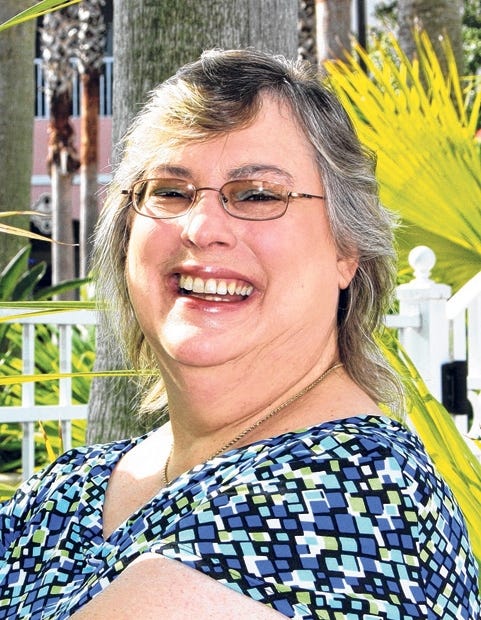
In our home, we are overwhelmed with robo and unwanted advertisement calls on our landline.
My husband gets many unsolicited calls on his cellphone. Several times a day we are interrupted and need to run and look at the phone's caller ID. Most of the time it is an 800 number or unknown area code. One day this week, the caller ID read "Illegal Scam." Sometimes calls look as though they are from the Crestview area, but if it is just a phone number with no name attached, it may be a spoof call. These calls become unbearable when we are trying to work.
According to the Federal Communications Commission website (www.fcc.gov) a spoof call is defined as "spoofing is when a caller deliberately falsifies the information transmitted to your caller ID display to disguise their identity. Scammers often use neighbor spoofing so it appears that an incoming call is coming from a local number. … If you answer, they use scam scripts to try to steal your money or valuable personal information, which can be used in fraudulent activity."
There is technology available to stop most of this. Many cellphone companies help their customers, but landline companies are more reluctant. Write your Congressman and insist that legislation is passed to stop this abuse on all phones. Also, if you haven't re-registered in the last five years, go to www.donotcall.gov and register your phones numbers. This doesn't stop the international scammers, but deters some in the United States. CenturyLink sent me to a page where I registered to not be included on lists published for marketing purposes.
The FCC has made reducing robo and unwanted calls a priority. "American consumers are sick and tired of unwanted robocalls, this consumer among them. Caller ID authentication will be a significant step towards ending the scourge of spoofed robocalls. It's time for carriers to implement robust caller ID authentication," said FCC Chairman Ajit Pai.
Real caller ID authentication means the phone company can detect when someone uses a false number to call with, but displays another number. There are services such as Nomorobo and Truecaller that identify robocalls and are relatively inexpensive. My best advice is do not answer phone calls from unknown names or numbers. It is difficult to scam if you won't talk with them. Some of these callers are very hostile and use filthy language if you don't buy their scam. I can't even repeat what one international caller said to my niece.
The FCC is also allowing phone companies to intercept some of these phony calls and disconnect them before they ever reach our phones. This is welcome news but may take some time to implement.
Should you want more information, here is an article on the FCC's website regarding unwanted robo calls and texts, www.fcc.gov/consumers/guides/stop-unwanted-robocalls-and-texts
Janice Lynn Crose, a former accountant, lives in Crestview with her husband, Jim; her two rescue collies, Shane and Jasmine; and two cats, Kathryn and Prince Valiant.
This article originally appeared on Crestview News Bulletin: Robo calls, spoofing must be stopped
